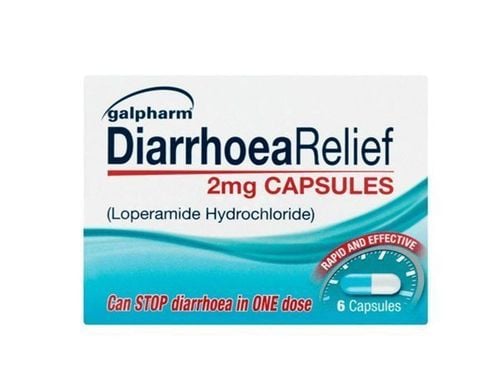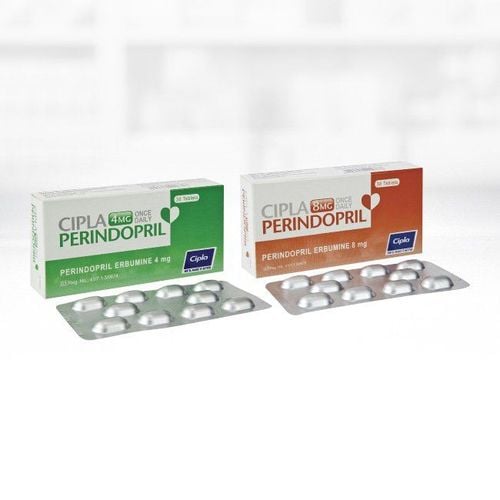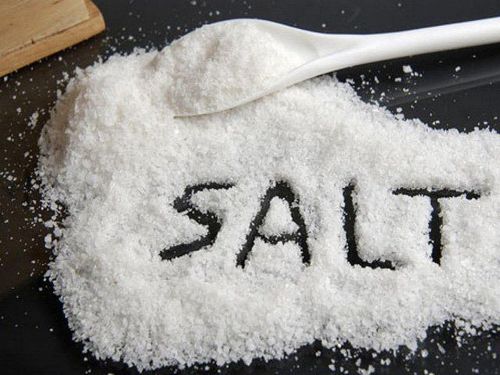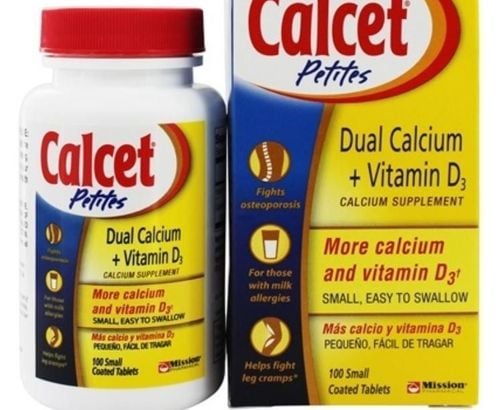This is an automatically translated article.
The article is expertly consulted by MSc Le Duong Tien - Internal Medicine and Rheumatology, Department of Medical Examination & Internal Medicine, Vinmec Danang International General Hospital. The doctor has 20 years of experience in the specialty of Internal Medicine. Especially, Dr. Tien has many years of experience in musculoskeletal, neurological, endocrine and cardiovascular.The use of too much salt in daily dishes causes many unpredictable consequences for health such as leading to stroke, kidney disease, high blood pressure, stomach cancer,... Limiting the use of food Salty, maintaining a scientific diet is a measure to help maintain health that each person should take.
1. What are the harmful effects of eating salty foods?
Salt is a spice that plays an important role in everyone's health. Every day, the amount of salt will be lost through the body's activities such as going to the toilet, sweating, tears, ... Adding salt to the body through food is the method to compensate for the amount. salt is lost. However, when making up for this deficiency, many people often have a habit of using a lot of salt because this spice is cheap and easy to create a rich flavor for the dish.However, is it good to eat a lot of salt? Regular consumption of salty foods can increase the risk of some diseases such as:
1.1 Hypertension
Eating salty foods regularly increases blood pressure. High blood pressure increases the risk of heart attack, stroke and kidney disease. Specifically, a high salt intake increases the permeability of cell membranes to sodium. Sodium ions will move more into the smooth muscle cells of the vascular wall, causing increased water in the cells, increasing vascular tone, causing vasoconstriction, increasing peripheral resistance and leading to increased blood pressure.Trắc nghiệm: Muối trong thực phẩm, natri, huyết áp và sức khỏe của bạn
Muối, natri là chất khoáng cần thiết cho cơ thể để duy trì hoạt động ổn định. Tuy nhiên, chế độ ăn thừa muối có nguy cơ cao dẫn tới các vấn đề sức khỏe nghiêm trọng. Cùng làm bài trắc nghiệm sau đây để hiểu hơn về những ảnh hưởng của các khoáng chất này tới huyết áp và sức khỏe bạn thế nào nhé.
Nguồn tham khảo: webmd.com
1.2 Stroke
According to the World Health Organization (WHO), regularly consuming salty foods leads to 62% of strokes. Scientists have shown that if you reduce 1 teaspoon of salt in your meals each day, it will help reduce the risk of stroke.1.3 Causing heart disease
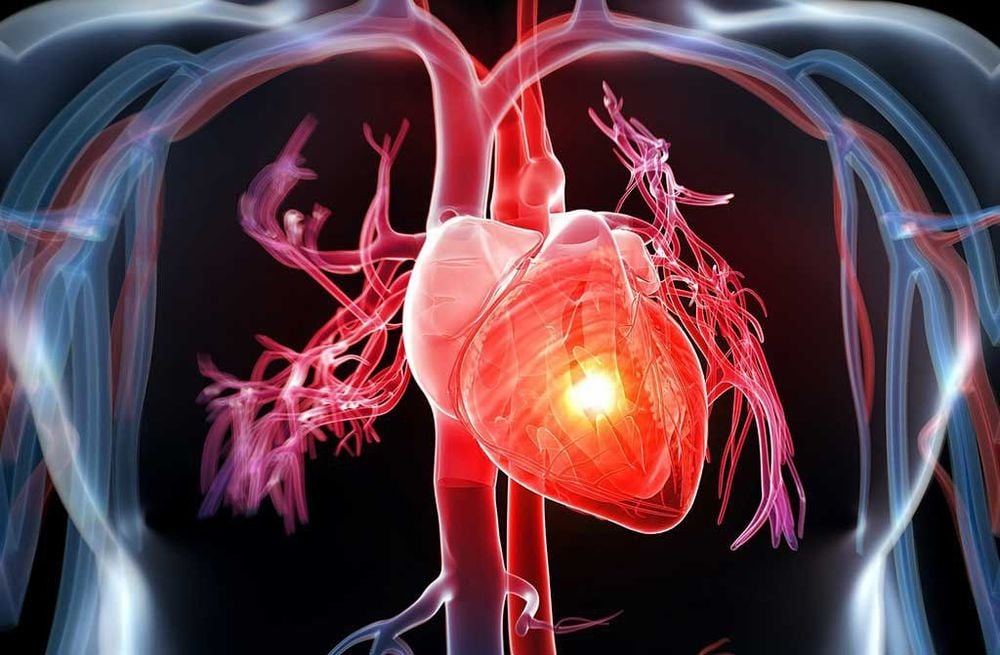
1.4 Damage to the kidney
Eating too much salt will affect the kidneys - an important organ that determines male physiology. Specifically, eating a lot of salt will cause the body to absorb more water, leading to increased blood circulation to the glomeruli, forcing the kidneys to work harder to filter blood. If the patient has kidney disease but still uses salty foods, the disease will get worse. On the contrary, if salt intake is reduced, kidney function will be better improved. In addition, salt is also the cause of diseases such as kidney stones, fatty kidneys, ...1.5 Causes stomach disease
Salt interacts with Helicobacter Pylori (HP) bacteria that cause stomach and duodenal ulcers. This type of bacteria is the cause of 80-90% of cases of stomach and duodenal ulcers. A Japanese study found that people who regularly eat salty foods have twice the risk of stomach cancer compared to other people. In addition, a high amount of sodium in the body also reduces the effectiveness of stomach cancer treatment.1.6 Weakening of bones
Eating salty damages bones. Eating too much salt can cause calcium loss from the bones while calcium is important for healthy bones. When bones lose calcium, they become weak and break more easily. This increases the risk of osteoporosis.1.7 Asthma
Using a lot of salty foods in your daily diet can trigger an asthma attack. In addition, asthma can increase the risk of kidney disease, bone disease, cardiovascular disease, ... and many other diseases.2. How should I change my eating habits?
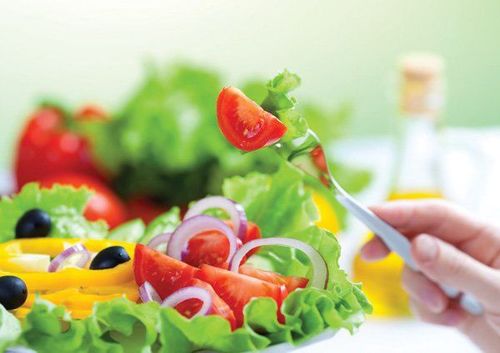
Prioritize choosing fresh food instead of pre-processed daily salty dishes such as salted meat, canned fish, bacon, sausages, spring rolls, pickles, salted eggplant, instant noodles, snacks chips, roasted salted cashews, etc. The reason is because processed foods are often added with a lot of salt to be preserved for a long time. If you still want to eat these foods, you should choose products with a lower salt content (see salt or sodium ingredients on food nutrition labels). Choose how to cook food: cook boiled or steamed dishes instead of dishes that require a lot of salty seasoning during processing such as braised, rimmed, roasted, etc. to reduce the daily salt intake from various foods. salty food . When cooking, if you want to reduce the salty seasoning, the cook should taste the food before adding the seasoning to ensure that the right amount is added, not too much. In addition, MSG is a sweet-tasting seasoning, but it contains sodium - similar to the main ingredient of table salt - so housewives should also limit the use of MSG to increase the sweetness of the dish. Salt should be reduced gradually so that the taste receptors can gradually adapt. Reduce the amount of salty seasonings that contain a lot of salt in dishes by processing them with other spices to increase the sense of taste. Cook at home to actively control salt intake in the best way. Limit dipping fish sauce, soup powder, etc. Ideally, when eating the above sauces, users should dilute, use other spices such as lemon, chili, garlic to increase the taste, make up for the salty taste. subtract. It is recommended to use salt and soup powder containing iodine to prevent goiter, intellectual disability and other disorders caused by iodine deficiency. Salt is a spice that has many health benefits, but if used too much, it will cause unwanted consequences. Therefore, we need to pay attention to limit the use of salty foods, have a reasonable and nutritious diet to improve health and protect our family against diseases.
Please dial HOTLINE for more information or register for an appointment HERE. Download MyVinmec app to make appointments faster and to manage your bookings easily.






